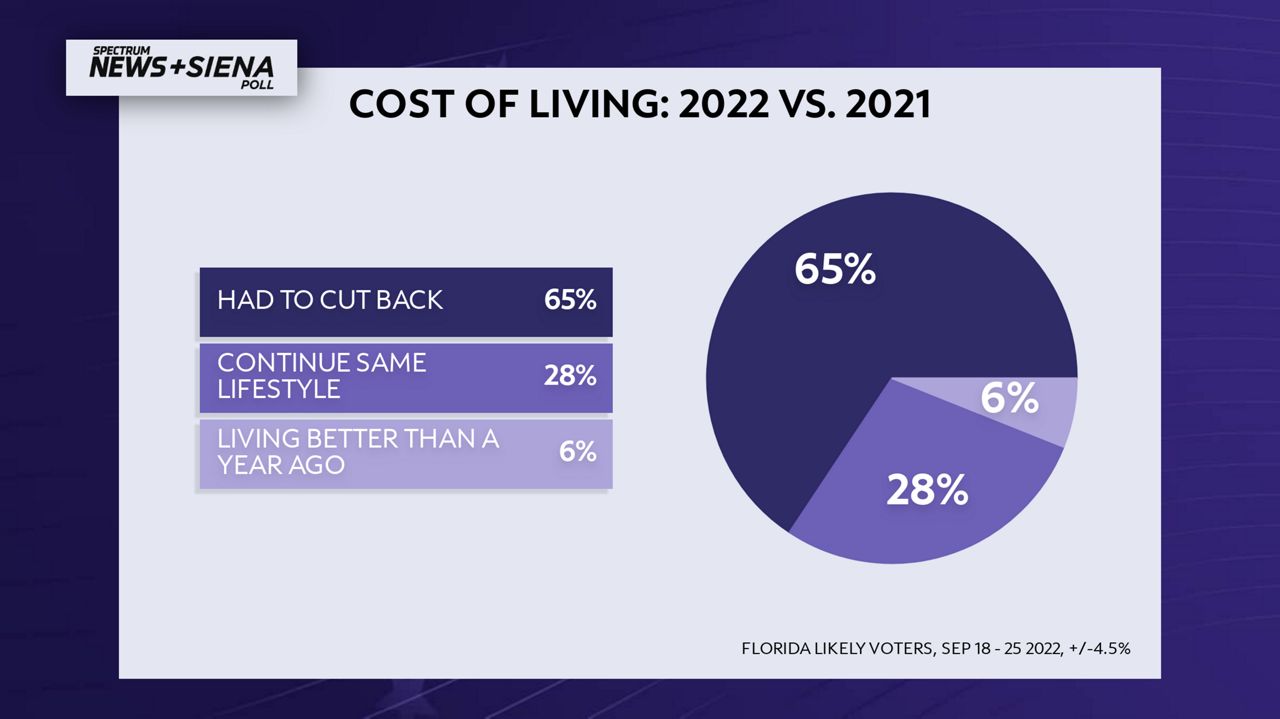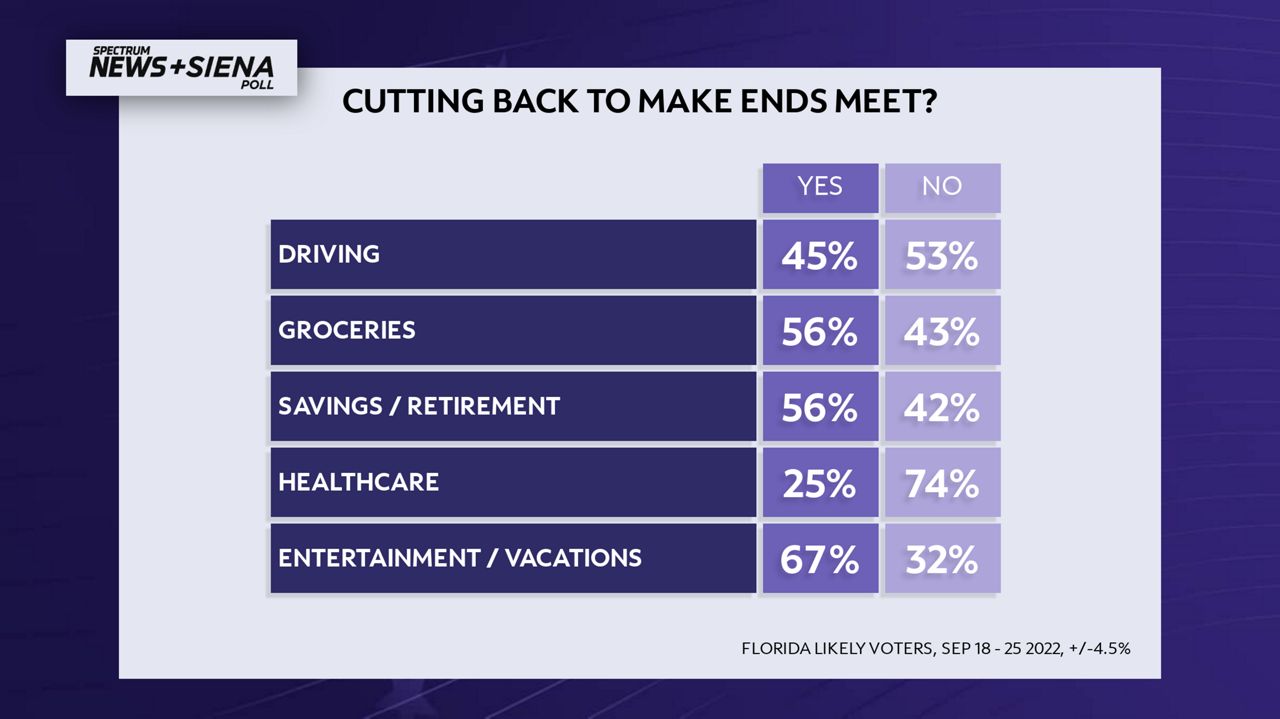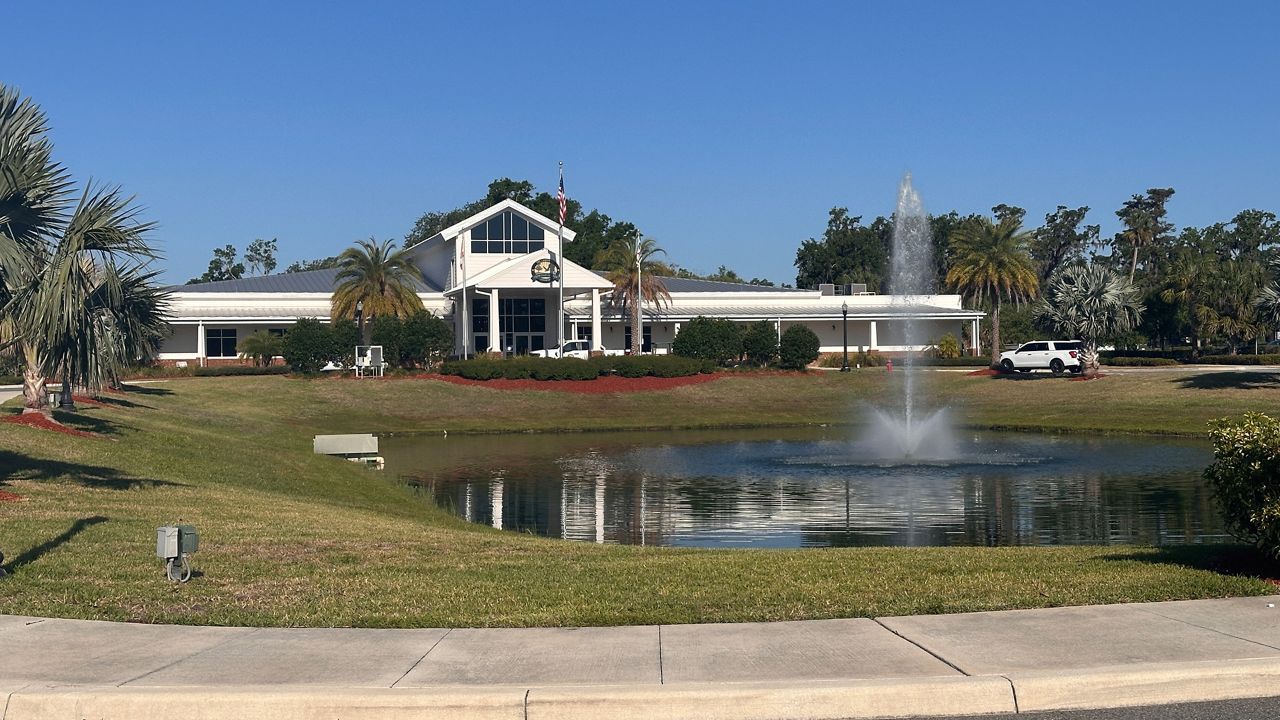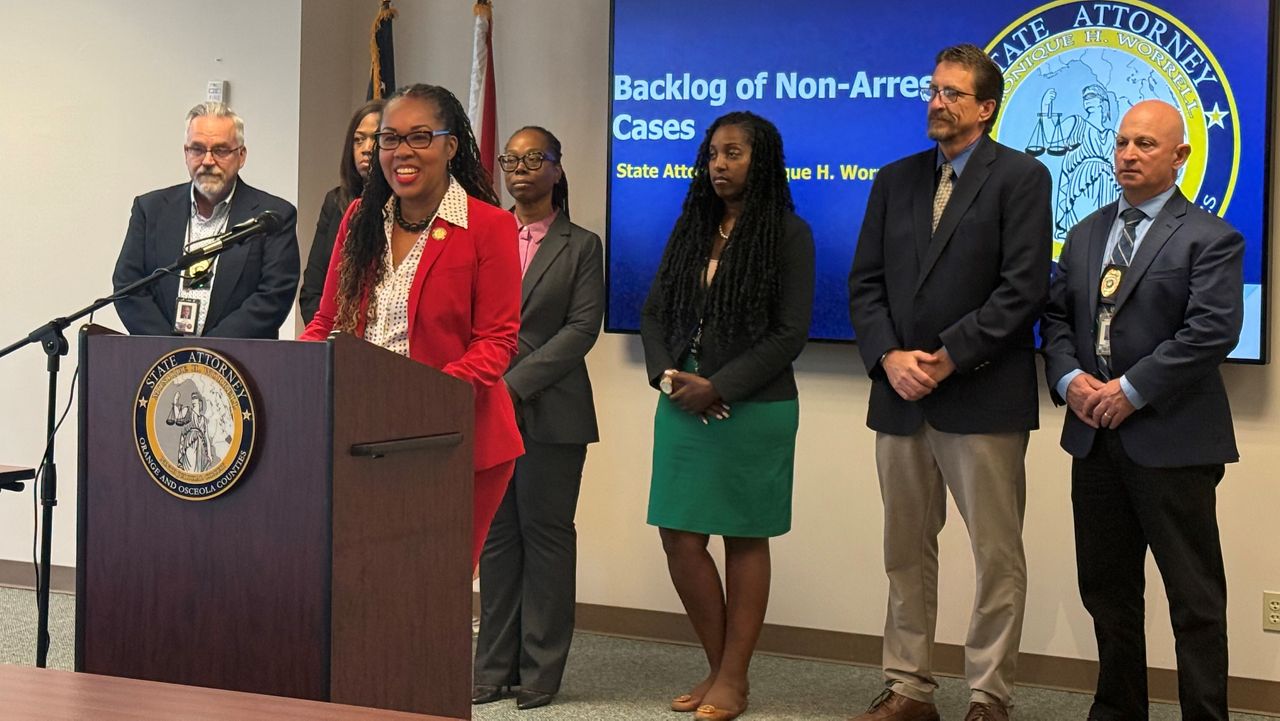According to an exclusive Spectrum News/Siena College poll, 65% of likely voters in Florida had to cut back their spending on key items due to inflation and other economic factors.
What You Need To Know
- Most likely voters have had to adjust their spending due to inflation and other factors
- RELATED: Spectrum/Siena poll: More Floridians support ban on assault weapons
- RELATED: Spectrum/Siena poll: Floridians sound off on 'Don't Say Gay Law,' immigration and more
- RELATED: Exclusive Spectrum/Siena poll: DeSantis, Rubio lead Democratic challengers in Florida
Additionally, 28% of respondents said that they are living about the same lifestyle as they were a year ago. Only 1% responded that they were unsure, and 6% said that they were living better than they were a year ago.

Interestingly, answers changed when political party affiliation was considered. A majority of Republicans (80%) and voters with no party affiliation (67%) said that they have had to cut back, but only 50% of Democrats said they have.
When asked on what aspects of their lives voters have had to cut back spending, 45% of all voters said they use their car less, 56% reported they cut back on grocery spending, 56% said they have cut back on putting away money for retirement and 25% reported having to cut back on health care treatment in the past year. In addition, 67% reported they spent less money on leisure spending including dining out than they did last year.

The partisan split was also present when voters were asked what they had to cut out in the past year. Republicans were more likely to say they cut back spending across every metric present in the poll.
Only 27% of Democrats responded they used their car less than a year ago, compared to 57% of Republicans. With groceries, 40% of Democrats said they bought less compared to 71% of Republicans.
When asked about putting money in a retirement account, 45% of Democrats said they saved less, compared to 65% of Republicans. Only 16% of Democrats said they have cut back on health care spending, and 30% of Republicans reported the same.
The trend continued with leisure spending, 57% of Democrats reported they spent less, and 82% of Republicans said they cut back their spending from last year.
The most important issue among voters is the economy, including inflation and the cost of living, with 39% of voters saying that was the first issue they considered when selecting a candidate. Republicans were also more likely to select the economy as their top priority, with 58% saying that was their first reason to vote in November.
The Democrat's primary issue in this election was threats to democracy, with 27% selecting that option. The options given in the poll were abortion, national gun policies, threats to our democracy, economic issues, crime, climate change, immigration and racial justice.
With the rise in food prices in the last year, consumers are having to fork up more to enjoy their favorite foods and treats. But some business owners are choosing to eat the extra costs themselves.
Louie Morehead is the owner of the Florida Key Lime Pie Company in Cocoa Beach, and he's worried about plastic takeout containers. He reports that the cost to him has tripled over the last year and a half. His favorite brand was discontinued, and he had to switch to a lower quality packaging that has a much higher cost.
Despite increases like the ones on takeout packaging, he's determined not to increase prices for his customers. Even with his prices staying about the same, he still has seen a 50% reduction in business that he blames on high gas prices and fewer people staying in hotels near his location.
As he gets ready to vote, he knows what he wants.
“We need to have an administration that is proactive for small businesses. We need to have an administration that is local consumer-friendly," he said.
So what'll have to happen for him to close up shop?
“I don't know. I don't really have a specific answer on what it would take because we've been through a lot of problems over the last year and a half," he concluded.
This Spectrum News/Siena College survey was conducted September 18-25, 2022, by telephone calls in English to 669 likely Florida voters. Telephone sampling was conducted via a weighted stratified dual frame sample of landline and cell phone drawn from the L-2 database of registered voters. Data was statistically adjusted by age, race/ethnicity, education, political party, regional vote pattern in the 2020 election, a combined measure of stated and derived vote likelihood, and gender to ensure representativeness. It has an overall margin of error of + 4.5 percentage points including the design effects resulting from weighting.







_crop)

